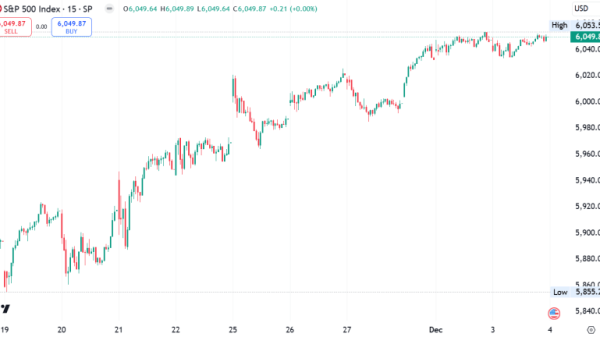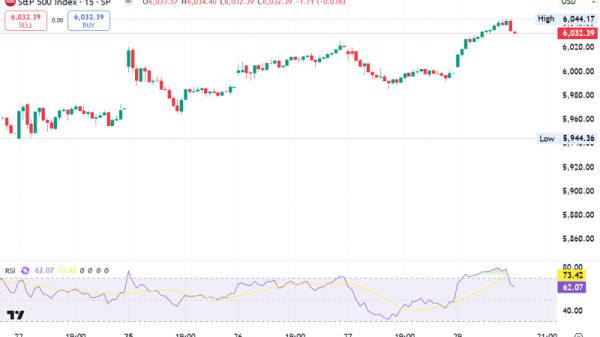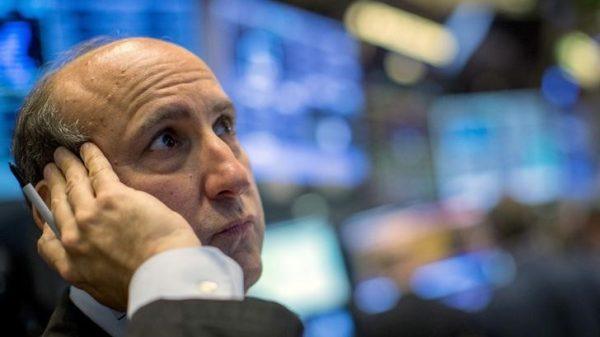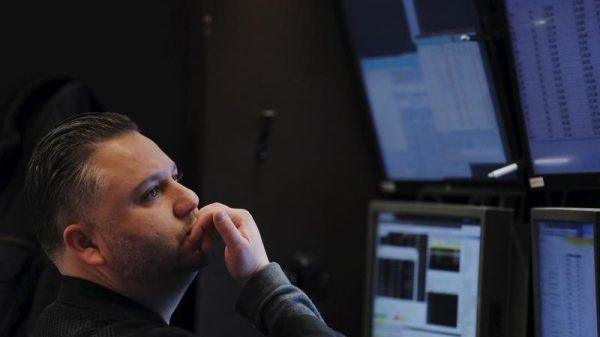By Mike Dolan
LONDON (Reuters) – It’s hard to imagine the gloom surrounding Europe’s biggest economy deepening much further than it already has, but Germany’s outlook for 2025 just keeps getting bleaker.
Germany’s economy flatlined in 2024, and it now faces potential trade wars with both the United States and China – compounding pressure on its dominant and already ailing auto sector. Geopolitical worries in Ukraine are ratcheting higher, energy prices are starting to creep back up and the country’s fiscal future is obscured by the fog of February’s election.
Germany is not the euro zone, of course, and the rest of the region is doing notably better.
But the world’s third-biggest economy still represents more than 30% of the bloc’s gross domestic product and further damage to the zone’s traditional powerhouse could force the European Central Bank to ease far further than its recent statements on gradualism suggest.
Even in a season for central banks’ financial stability reviews – and their required scary lists of outsize risks – the Bundesbank’s version stood out this week.
Germany’s central bank stressed that the country’s corporate sector is still dogged by “profound structural challenges” that have caused aggregate earnings to decline almost every quarter for two years. And it pointedly spotlighted the damage still-high interest rates could yet wreak to darken the mood.
“A significant number of corporate insolvencies are likely next year,” the Bundesbank said. “Default risk for non-financial corporations is likely to remain elevated in 2025 … given ongoing structural change and the continued economic weakness.”
Although insolvencies through the first half of 2024 remain below the peaks of the global banking crash and euro crisis over a decade ago, the report showed that they had risen 25% over the previous year.
WEATHERING A WORSENING STORM
The Bundesbank laced the gloom with some confidence, noting that the economy was still weathering the huge shocks of the past two years.
It pointed out that fixed-rate loans taken out before 2022’s interest rate shock remained relatively cheap with a median rate of 2.6%. But it also noted that almost 10% of outstanding loans that need to be refinanced by the end of 2025 with new 3-5 year tenors would likely see borrowing costs jump to 4%.
“Sound fundamentals mean that the vast majority of enterprises should be able to cope with these burdens,” it said. “If, on the other hand, developments in the macro-financial environment are noticeably weaker than forecast, higher default risks are to be expected.”
None of this will be news to the ECB, which has already cut its main policy interest rates three times since mid-year from 4% to 3.25% and is widely expected to move again next month.
Like all other central banks – it can only surmise the effects of a global trade war and needs to wait until late January at least to find out if President-elect Donald Trump actually follows through on his long-threatened tariff plans.
And yet senior ECB figures already seem to see a trade war as more worrisome for growth than inflation.
ECB chief economist Philip Lane said on Thursday that global economic output would suffer a “sizeable” loss if trade became more fragmented while an initial boost to inflation would “subside gradually”.
For Germany’s export engine, trade fears could be amplified threefold – by the direct impact of universal U.S. tariffs, any hit to overall Chinese demand for its goods due to more severe U.S. barriers on China, and also the implications of the ongoing row between the European Union and China over autos.
AGGRESSIVE TARIFFS
Given all that, the big investment houses remain remarkably sanguine about the broader outlook for Europe next year. Annual investor forecasts have been streaming in over the last week, and they mostly call for some cyclical rebound in Europe, helped by falling interest rates, a weaker euro and resilient households.
What’s more, there’s some hope for more clarity on fiscal policy after the German election.
Germany’s blue-chip stock index hit another record high last month, notching a 15% gain so far this year, and it’s only slipped about 3% from that peak since.
The problem for policymakers and investors alike is that visibility is incredibly low and may remain so for months.
Salman Ahmed, Fidelity International’s Global Head of Macro (BCBA:BMAm) and Strategic Asset Allocation, reckons U.S. tariff risks could reduce euro zone growth by half a percentage point next year and Germany could be hit additionally by its own election anxieties.
Given that the International Monetary Fund already forecasts 2025 German growth to be the weakest among the G7 countries next year at just 0.8%, a jolt of that scale would mean the country could be flirting with recession for another year.
Ahmed’s baseline view is the ECB will cut rates quickly to 2%, followed by a more gradual move to 1.5% by the end of next year. But even that hinges on a scenario where U.S. tariff hikes end up being less than Trump’s pre-election pledges.
“More aggressive tariffs risk provoking additional and accelerated easing,” he said, adding the ECB would then need to keep a close eye on the extent of the ensuing weakness.
German economic gloom may be nothing new – there’s every reason to think it could get even worse before it lifts.
The opinions expressed here are those of the author, a columnist for Reuters
(By Mike Dolan; Editing by Sonali Paul)




































